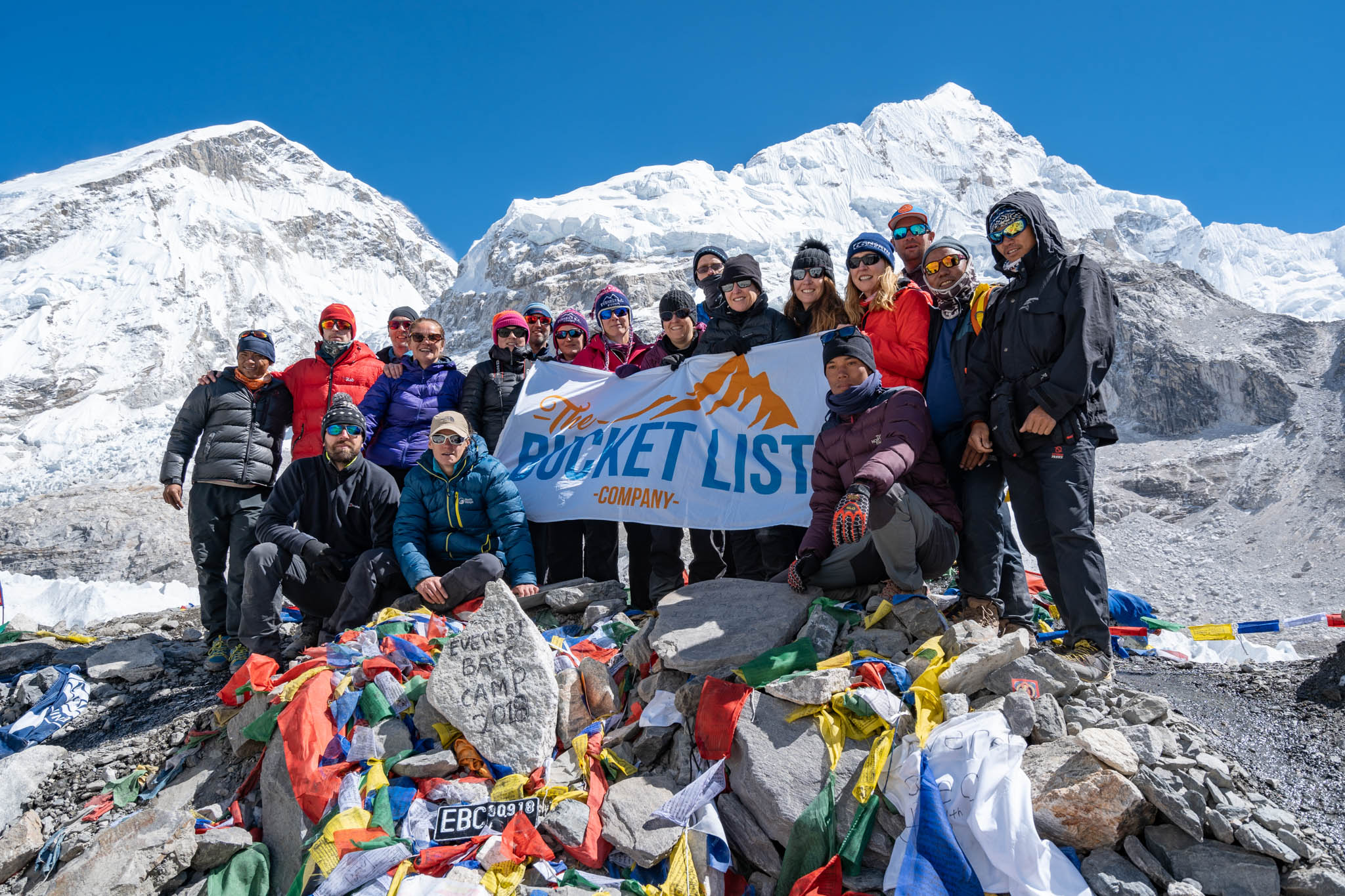

The Bucket List Company

1.6
Devon, United Kingdom
April 2025
Travel agency & related
Service with Minor Environmental Footprint
Ireland,
United Kingdom
Our Mission: To help people achieve their life-defining goals through transformative, responsibly-managed adventures. At The Bucket List Company, we believe that travel should be more than a vacation; it should be a catalyst for personal growth, human connection, and positive global impact. We curate and lead extraordinary group expeditions to the world's most iconic destinations—from the summit of Kilimanjaro to the ancient trails of Machu Picchu and the majestic base camp of Everest. But our purpose extends far beyond the destination. As a certified B Corporation, we are fundamentally committed to using adventure as a force for good. We measure our success not just by the incredible experiences we provide our customers, but by the tangible, positive impact we create for our people, the communities we visit, and the planet we explore. How We Create Impact: Empowering Local Communities: We believe in travel that builds, not just visits. We exclusively employ local guides, porters, and support staff, paying them fair, living wages that empower their families and sustain their communities. We prioritise partnerships with locally-owned lodges, restaurants, and suppliers, ensuring that tourism revenue directly benefits the local economy. Environmental Stewardship: Our planet is
Overall B Impact Score
Governance 18.8
Governance evaluates a company's overall mission, engagement around its social/environmental impact, ethics, and transparency. This section also evaluates the ability of a company to protect their mission and formally consider stakeholders in decision making through their corporate structure (e.g. benefit corporation) or corporate governing documents.
What is this? A company with an Impact Business Model is intentionally designed to create a specific positive outcome for one of its stakeholders - such as workers, community, environment, or customers.
Workers 24.2
Workers evaluates a company’s contributions to its employees’ financial security, health & safety, wellness, career development, and engagement & satisfaction. In addition, this section recognizes business models designed to benefit workers, such as companies that are at least 40% owned by non-executive employees and those that have workforce development programs to support individuals with barriers to employment.
Community 26.3
Community evaluates a company’s engagement with and impact on the communities in which it operates, hires from, and sources from. Topics include diversity, equity & inclusion, economic impact, civic engagement, charitable giving, and supply chain management. In addition, this section recognizes business models that are designed to address specific community-oriented problems, such as poverty alleviation through fair trade sourcing or distribution via microenterprises, producer cooperative models, locally focused economic development, and formal charitable giving commitments.
What is this? A company with an Impact Business Model is intentionally designed to create a specific positive outcome for one of its stakeholders - such as workers, community, environment, or customers.
Environment 6.5
Environment evaluates a company’s overall environmental management practices as well as its impact on the air, climate, water, land, and biodiversity. This includes the direct impact of a company’s operations and, when applicable its supply chain and distribution channels. This section also recognizes companies with environmentally innovative production processes and those that sell products or services that have a positive environmental impact. Some examples might include products and services that create renewable energy, reduce consumption or waste, conserve land or wildlife, provide less toxic alternatives to the market, or educate people about environmental problems.
Customers 5.0
Customers evaluates a company’s stewardship of its customers through the quality of its products and services, ethical marketing, data privacy and security, and feedback channels. In addition, this section recognizes products or services that are designed to address a particular social problem for or through its customers, such as health or educational products, arts & media products, serving underserved customers/clients, and services that improve the social impact of other businesses or organizations.